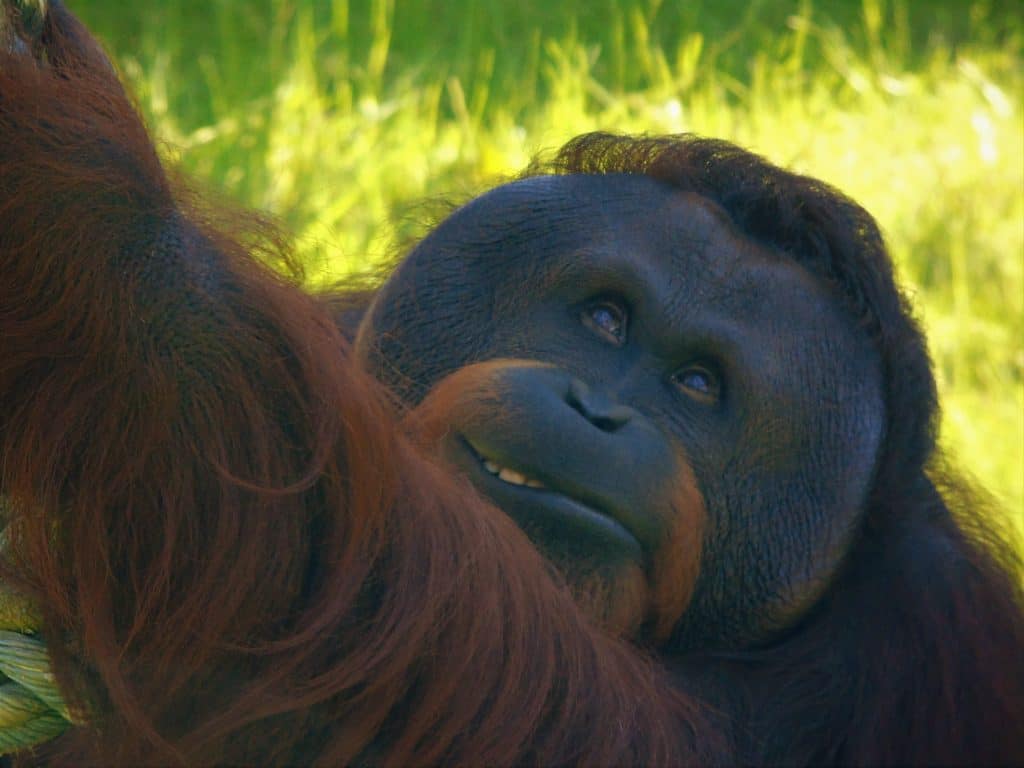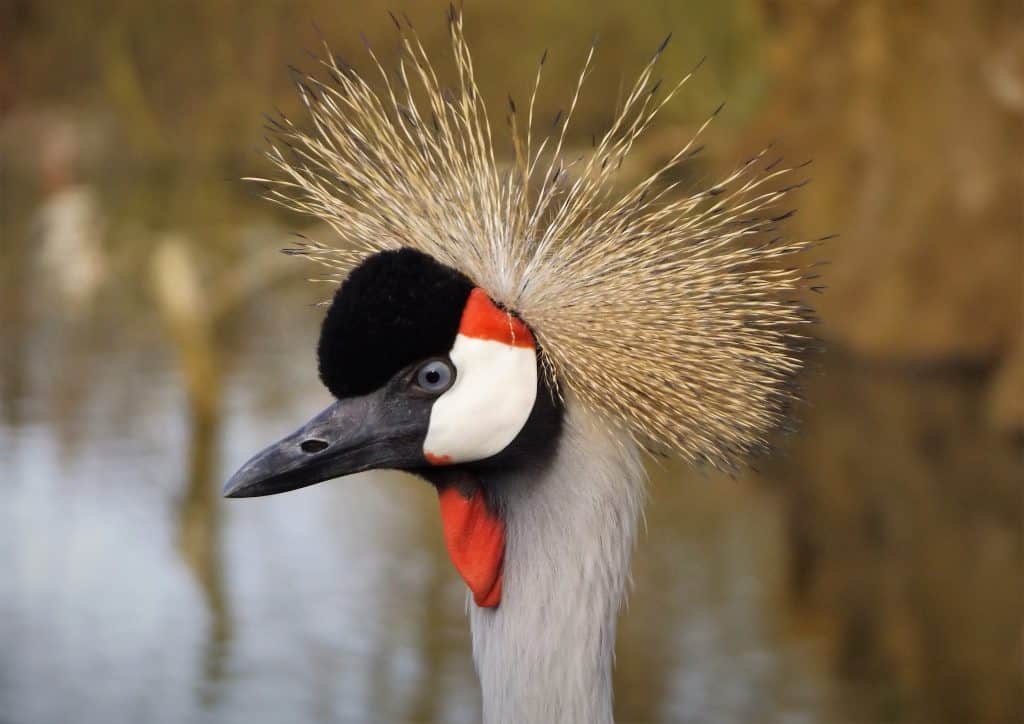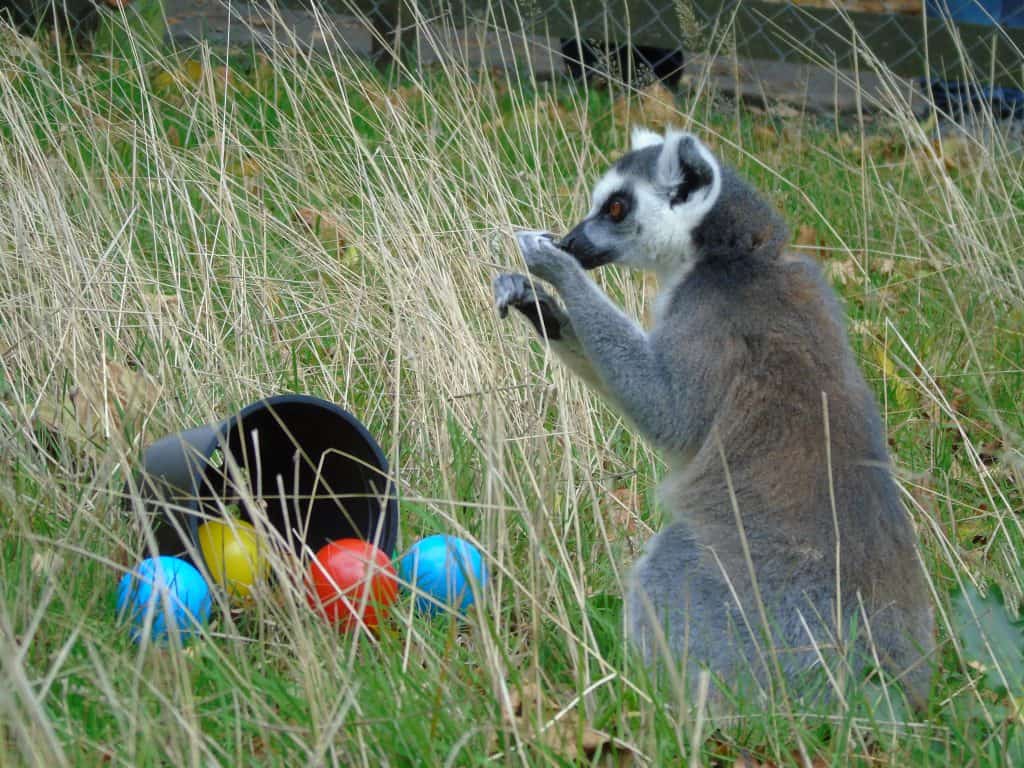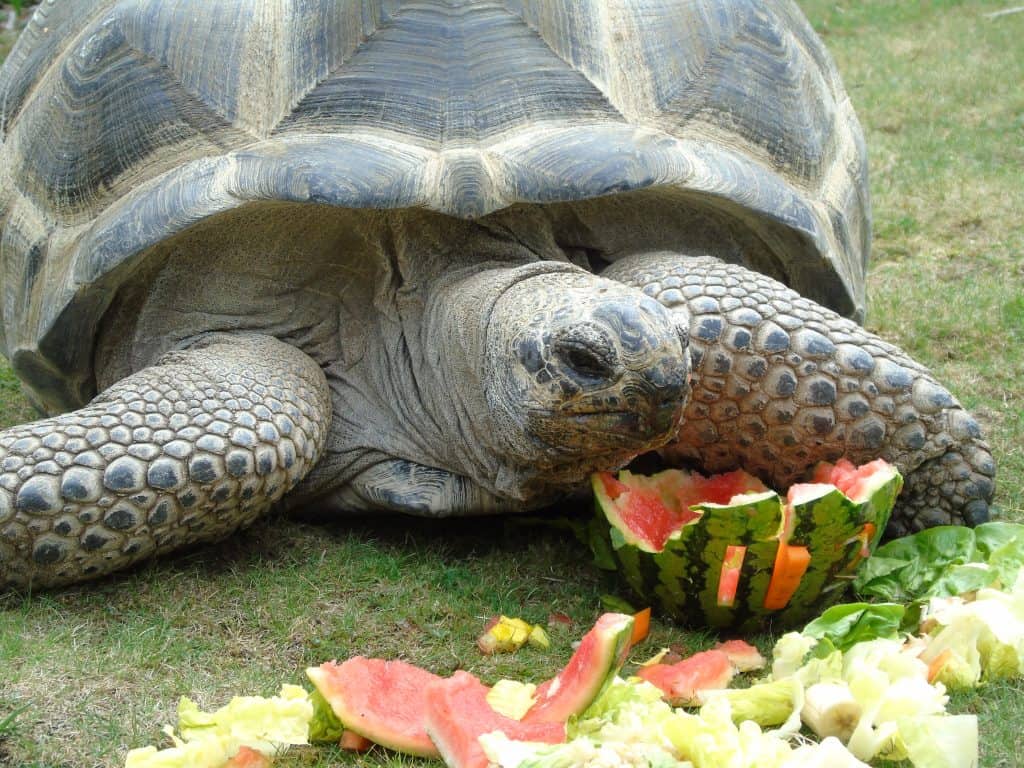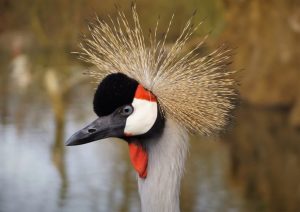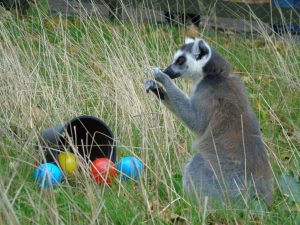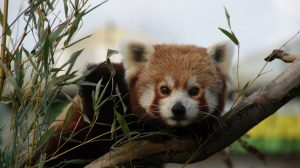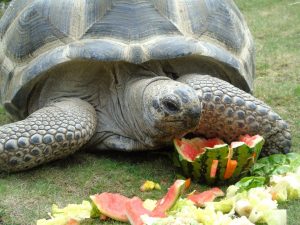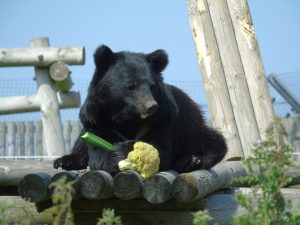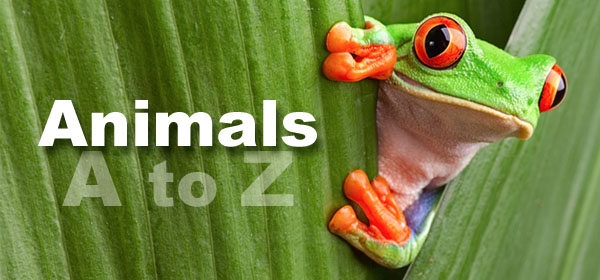Learn about endangered species at this top Kent education provider
Science
Evolution and Extinction
- By observing our animals behaviour children can gain a greater understanding of how different species adapt to their environment and discuss what would happen if that environment changed.
- Recognise that evolution takes place slowly over thousands of years so when changes in the environment happen quickly animals and plants struggle to adapt, becoming endangered and even extinct.
- In Rainforest SOS there is an exhibit named The Silent Avery which is home to images and information about some the of birds which have become extinct over the last century and the threats they faced. Next to this there is a large sign about one of the most famous extinct birds, the Dodo and how its species died out.
- There are opportunities for children to consider why evolution is crucial to survival. For example, they can compare the difference in size between deinosuchus in our Dinosaur Zoo and our Cuban crocodiles in the Reptile House, discussing the impact that this may have had on one’s survival and the others extinction to help them understand how species become endangered naturally.
Environment
- Use information available during talks and on signs to recognise the ways in which environments can change and that this can pose dangers to living things. Understanding that these changes can happen naturally but are more often caused by human activity.
- By protecting the environment humans can protect endangered species. Learn about projects Wingham Wildlife Park is involved in including with the Population Sustainability Network in Uganda, helping people to live in harmony with the endangered species they share their homes with such as chimpanzees, gorillas and African elephants.
- Understanding that it is not only animals which become endangered but also plants. Children can learn about endangered plant species in our Rainforest SOS area.
Geography
Ecosystems
- Explore the effect humans can have on ecosystems to understand what is causing species to become endangered worldwide. Children can learn about deforestation for mining, logging, climate change, agriculture, urbanization, and palm oil plantations.
- There is also information available in Rainforest SOS about forests which have come back from the brink to show that humans can also have a positive impact on the natural world and saving species.
- Discover how species within an ecosystem mutually benefit from the life cycle and behaviour of one another and consider the impact on food webs when food sources and habitats become unavailable. Students can construct their own food chains using the variety of animals at our park to help them gain a better understanding of this.
Physical geography
- Children can learn about geographical differences worldwide including key aspects of physical geography and human geography and how these are changing.
- Identify countries, continents and oceans to gain knowledge about different habitats and use this to understand how animals adapt to their surroundings.
Endangered Species Worldwide
- Use maps available on many of the enclosures and the characteristics of the enclosures themselves to explore different habitats. This will help students to understand how species become endangered when their environment changes.
- All our enclosures have signs which include information about the animal’s habitat, diet and classification on the endangered species list etc to help visitors gain knowledge about their natural environment and the challenges they face in the wild.
- Explore places and species from around the world by visiting endangered species native to Africa, Europe, South America, North & Central America, and Asia.
History
Extinction theories
- Our Dinosaur Zoo provides an opportunity to explore a variety of extinction theories with information provided about six of the most catastrophic extinction events our planet has experienced including the Ordovician Silurian extinction caused by an ice age and the current Halocene extinction being caused by human impact. This shows that species can be threatened in a wide variety of ways.
Ethnography and natural history museum
- This area provides an opportunity for students to experience the fossils of extinct species first-hand. Our collection includes a mammoth tooth, plant fossils and extinct fish and marine reptile fossils to name but a few, which will help students to understand living things that inhabited the Earth thousands and even millions of years ago.
- This collection also includes items seized by customs which have been made illegally from animals. This will help students to understand that animals aren’t only being threatened by changes to the environment but also because of hunting for their fur, the pet trade, bush meat and traditional Chinese medicine.
English
Statutory key stage 1 & 2 words
- Ten key stage 1 and another ten key stage 2 words relevant to the subject from the statutory word lists are on display the Dinosaur Zoo with a short explanation of their meaning. The reading word is used in the example given to develop children’s understanding of the word itself and ability to correctly spell/read it.
PD (H&SC)
Human responsibility
- Develop an understanding that humans have a responsibility to care about our impact on food chains and habitats.
Teaching outcomes lead to being able to…
- identify different endangered species from around the world.
- understand that there are a wide variety of threats challenging animals.
- understand the meaning of endangered and extinct.
- learn that humans can have a positive impact on the world and can help endangered species in a variety of ways.
- understand that different species face different threats, they are not all challenged by the same issues.
How to best use our zoo and other exhibits during a school visit:
This self-guided tour is one of a series of itineraries we have prepared for schools. The Endangered Species adaptation highlights the following exhibits and species.
- Barbary Macaques
- Ethnography and Natural History Museum
- Red Pandas
- Tropical House
- Ring-tailed Lemurs
- Aldabra Giant Tortoises
- Moon bears
- Bornean Orangutans
- Silent Aviary
- Chimpanzees
We recommend you start your tour at the barbary macaque enclosure which is easily accessed from the entrance. Barbary macaques are classified as endangered and our troop were rescued by AAP in the Netherlands from the pet trade and given a permanent home with us. Their enclosure has information about this. Next is our Ethnography and Natural History Museum which has lots of interesting items including the fossils of extinct species and examples of the products animals are hunted for ranging from wall decorations to fur coats and paperweights to handbags made from lizard skins.
From here you can walk around the corner to see our red pandas. Red pandas have in recent years been reclassified from vulnerable to endangered and their numbers are still declining, largely due to habitat loss. This area is opposite the Tropical House which is home to our critically endangered Edwards’ pheasants (threatened in the wild by high levels of hunting and lowland forest deterioration). Next, we recommend visiting our ring-tailed lemurs which are classified as endangered. They have a walk-through enclosure which is open from 12-1pm and 2-3pm every day You may also be interested in our daily lemur talk which takes place at 2.45 pm.
After you are finished at the lemurs please move on to see our Aldabra giant tortoises (listed as vulnerable). Their enclosure has information about threats they have faced in the past and how they became protected. This species still faces a number of threats today but are greatly threatened by global warming which is causing sea levels to rise around their atolls. Continuing in this direction you will discover our moon bears (classified as vulnerable) and information about the practice of traditional Chinese medicine which threatens them. From here it is easy to reach Rainforest SOS, home to our critically endangered Bornean orangutans and the Silent Aviary. All the enclosures in Rainforest SOS are all dedicated to educating visitors about the different forms of deforestation and inside the Orangutan House there is a focus on palm oil plantations. Finally, on your way to the exit walk through our Chimpanzee House to see our critically endangered troop of western chimpanzees and learn more about the challenges they face and what we are doing to help.
This route will take you past a variety of other interesting and endangered species including mandrills, gibbons, tapirs, clouded leopards and the Eurasian Lynx which once roamed the UK but became extinct here after facing a combination of loss of woodland and hunting.
To help children to learn more about this subject we recommend pairing this itinerary with one of the following education talks,
- Evolution of animals
- Nature on your doorstep
- Reduce, reuse, recycle
- Dinosaurs, fossils and extinction
Some interesting facts and learning points:
- More than 32,000 species are currently threatened with extinction- that is 27% of all assessed species.
- In our Tropical House you can see the Edwards’s pheasants. These pretty birds are so critically endangered that not one has been seen in the wild since 2000. We collect donations for the World Land Trust to help protect their natural habitat in Vietnam.
- Charles Darwin was involved in gaining protection for Aldabra tortoises in their natural range, the Aldabra Atoll.
- One of the biggest threats to orangutans is the palm oil industry. But we should not boycott palm oil, it uses up far less land than other oils would. So, the best way to help orangutans is to check the packaging of products and only buy those made with sustainable palm oil.
- A keystone species is a plant or animal that plays a crucial role in their ecosystem. While all species in a habitat rely on each other, keystone species have a huge impact on their environment. Their disappearance would start a domino effect, leading to other species also disappearing.
- The IUCN categorises species into seven different classifications which run from Least Concern to Extinct as shown below.
| Least Concern (LC) | Near Threatened (NT) | Vulnerable (VU) | Endangered (EN) | Critically Endangered (CR) | Extinct in the Wild (EW) | Extinct (EX) |
What schools think of an educational day out in Kent with Wingham Wildlife Park
After every school visit we ask a teacher from the group to fill in a short email form about their day with us. We are always looking to improve the experience for the kids as well as the teachers and helpers, so please do take the time to fill one of these in if you decide to join us for a day with your class. Here is what some of our past teachers have said about a school visit to Wingham Wildlife Park!
Find out more & book
To find out more about booking one of our educational visits please check out our website, give us a call or simply fill in the form below:
